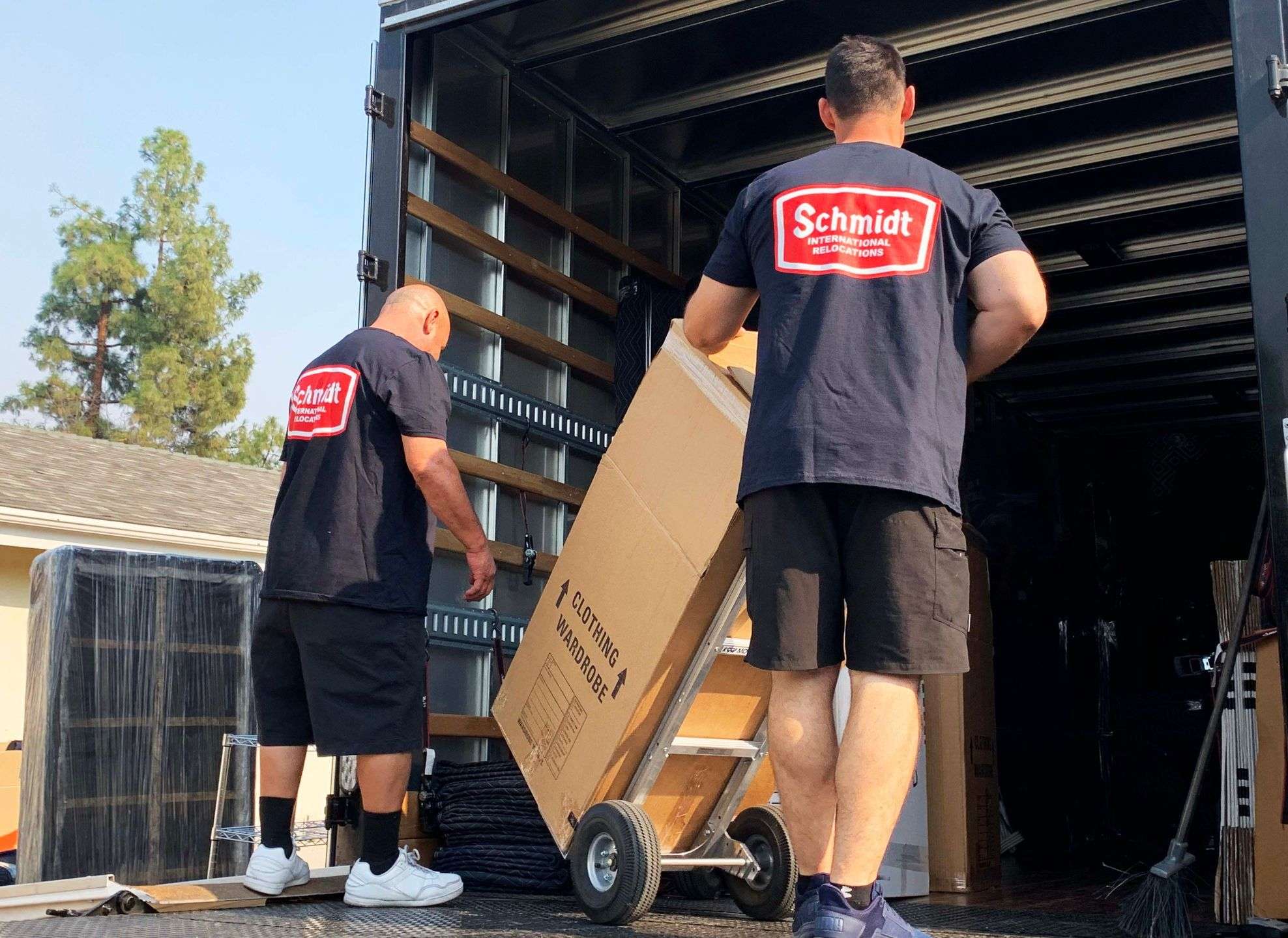

Dealing with the feeling of longing for one’s homeland and familiar comforts is a crucial aspect of the emotional journey when moving internationally. Coping with nostalgia can often be overwhelming. This guide provides insights and strategies to manage these emotions effectively, embracing the new while honoring the past.
The Basics of Nostalgia in the Context of Moving Abroad
Nostalgia, in the context of moving overseas, refers to a sentimental longing or wistful affection for the past, especially for one’s homeland or familiar surroundings. This emotional response is commonly triggered by the significant changes and challenges encountered during preparations for relocation.
The triggers can vary widely, ranging from missing family and friends or struggling with culture shock to yearning for familiar cultural practices, foods, or even the general ambiance of one’s home country. The process of leaving behind known environments, routines, and social networks can profoundly evoke these nostalgic feelings, making them a natural part of the transition journey.
The Psychological Impact and Normality of Nostalgia
The psychological impact of dealing with nostalgia when moving internationally is significant. It often manifests as feelings of loneliness, sadness, or a sense of loss and anxiety about relocation. This emotional state can influence one’s mood and behavior, potentially affecting the ability to adjust to a new country.
However, it’s important to emphasize the normality of nostalgia during such big life changes. It’s a natural human response to seek comfort in familiar memories when faced with the unknown in a new city. Recognizing and accepting these feelings as a normal part of the relocation process is crucial in managing them healthily and moving forward constructively.

The Emotional Aspects of Relocation to Another Country
Relocating to another country is an emotional rollercoaster, encompassing various stages of response. Initially, there’s often a sense of excitement and anticipation driven by the prospects of new experiences and opportunities. This enthusiasm, however, can soon give way to feelings of long-distance moving stress and uncertainty as the reality of the move sets in.
Upon arrival, individuals may experience a phase of adjustment, grappling with cultural differences and potential language barriers. As the novelty wears off, homesickness and nostalgia typically emerge, characterized by a longing for familiar people, places, and routines left behind.
One might even experience depression after relocating. This phase can be interspersed with moments of joy and discovery. Over time, as one starts to integrate and form connections while living overseas, a sense of belonging and acceptance gradually develops.
What’s the Role of Nostalgia in the Adaptation Process?
Nostalgia plays a complex role in the adaptation process to a new environment. On one hand, it can be a comforting emotional refuge, offering solace and a sense of identity during times of overwhelming change. The memories of ‘home’ serve as a stable anchor, providing emotional continuity in a sea of new experiences you have after moving across the world.
On the other hand, nostalgia, if dwelled upon excessively, can hinder the process of adapting and integrating into the new environment. Balancing the excitement of different experiences with the comfort of old memories is crucial. Embracing the culture and forming connections while also cherishing and maintaining ties to one’s roots can create a healthy equilibrium, facilitating a smoother transition and fostering a sense of belonging in both worlds.

Learn Practical Strategies for Coping With Nostalgia
How to deal with nostalgia? Coping with nostalgia during relocation abroad involves acknowledging and addressing these emotions constructively. Recognize that feeling nostalgic is a normal reaction and a part of the transition process. Engage in activities that remind you of home, like cooking traditional dishes or listening to familiar music.
However, it’s also important to balance this by exploring and appreciating the new culture. Create a scrapbook or journal to document your experiences and feelings. This tangible record can be a therapeutic way to process and embrace the changes, building emotional resilience in relocation.
Tips for Staying Connected With Your Roots
Staying connected with your roots is crucial in managing nostalgia. Maintain traditions that are important to you and your family, even if they need to be adapted to your new home and country. Regular communication with friends and family back home is vital – schedule regular video calls or write emails to stay updated.
Engaging in community groups or social clubs related to your home country can provide a sense of familiarity. Simultaneously, be open to creating new traditions and memories, which can help establish a sense of home after the move.
Utilizing Technology to Bridge the Gap Between the Old and New Worlds
Technology plays a significant role in bridging the gap between your old and new worlds. Utilize social media platforms to stay connected with your community back home and to find local groups or events in your new area. Video calling apps like Skype or Zoom allow for regular face-to-face interactions with loved ones, reducing feelings of distance and isolation.
Online forums and expat communities can offer support and advice for expat mental health from others who have undergone similar experiences. Embrace digital tools for language learning, which can ease communication barriers in your new environment.

Settling in Abroad – How to Make Your New Place Feel Like Home?
How to get over nostalgia once you unpack after relocation? Settling into a new place abroad involves personalizing your space to create a sense of comfort and familiarity. Start by decorating your home with personal items that hold sentimental value, like photographs, artwork, or small keepsakes from your homeland. Incorporate familiar scents, such as candles or incense, that remind you of home.
Arranging the space to mirror the layout of your previous home can also evoke a sense of familiarity. Don’t hesitate to mix local decor with your own style to create a unique blend that represents both your past and present. Lastly, adding plants or flowers can bring life to your space and make it more inviting.
Importance of Establishing Routines and Finding Community Connections
Try to integrate elements from your old routine into your daily life. This might include continuing a favorite hobby or maintaining a similar meal or exercise schedule. Seek out local communities or expat groups where you can meet people with shared interests or backgrounds.
Engaging in local events and activities can also help you feel more connected to your surroundings. By creating a balance between maintaining aspects of your previous lifestyle and embracing new experiences, you can build a sense of continuity and belonging.

What to Do if Nostalgia Becomes Overwhelming
When nostalgia becomes overwhelming, it’s crucial to recognize its impact on your ability to adapt to the new environment. If you find yourself excessively dwelling on memories of home, struggling to engage with your surroundings, or feeling persistently sad or anxious, it’s a sign that nostalgia is becoming a hindrance.
To counteract this, actively seek out new experiences and connections in your current location. Engage in activities that interest you and explore your community. Practicing mindfulness and living in the present can also help shift your focus. Remember, it’s about finding a balance between cherishing the past and embracing the present.
Seeking Support – When to Talk to a Professional About Relocation Stress and Nostalgia?
Seeking professional support is advisable if relocation stress and nostalgia significantly impact your daily life. If you experience persistent sadness, anxiety, difficulty in adjusting despite efforts, or if nostalgia hinders your functioning, it’s time to talk to a professional. Counseling can provide a safe space to process your emotions and develop strategies to cope effectively.

The Role of a Moving Company in Easing the Transition
The role of an international moving company in easing the transition to a new country is often underestimated. Choosing the right relocation company can significantly reduce the stress associated with international relocation. Hiring movers ensures not just the physical transportation of belongings but also peace of mind and international moving support, knowing that your possessions are in safe hands. This assurance allows you to focus more on the emotional aspects of the move.
A professional moving service ensures a smoother transition by handling the logistical complexities, reducing the burden on you and your family. Here are services that relocation companies like Schmidt International Relocations can provide to make the transition smoother:
- Professional packing services to ensure safe transportation of belongings,
- Storage solutions for items that are not immediately needed,
- Custom clearance assistance and guidance on international shipping regulations,
- Transportation of vehicles and special items,
- Comprehensive insurance coverage for peace of mind,
- Assistance with assembling furniture in the new home,
- Ongoing support and tracking throughout the moving process.
Contact Schmidt International Relocations for Expert Help That Will Make Your Upcoming Move Effortless
Embark on your international move with confidence by contacting Schmidt International Relocations. Our expert team is dedicated to making your relocation effortless and stress-free. We understand the complexities of moving abroad and offer comprehensive services tailored to your unique needs. From handling delicate packing to managing logistics, we ensure every aspect of your move is covered with empathy and professionalism.
Our commitment to providing a seamless experience is reflected in our attention to detail and customer care. Choose Schmidt International Relocations for a moving service that not only transports your belongings but also cares for your peace of mind. Contact us today and take the first step towards a smooth, successful relocation.
How Can I Preserve Memories of My Old Home While Embracing the New One?
To preserve memories of your old home while embracing the new one, create a memory corner with photos and keepsakes. Maintain traditions that remind you of your previous home, and share stories of your past with new friends. Simultaneously, personalize your space to reflect your current experiences and journey.
What Are Effective Ways to Stay Connected With Friends and Family After Moving Abroad?
Staying connected with friends and family after moving abroad can be done through regular video calls, social media, and instant messaging. Plan visits, either by going back home or inviting them over. Sending letters, postcards, or care packages can also be a heartfelt way to maintain strong emotional bonds.
How Long Does It Typically Take to Adjust Emotionally After an International Move?
The emotional adjustment after an international move varies, but it typically takes several months to a year. This period depends on factors like cultural differences, language barriers, social support systems, and individual resilience. Continuous efforts to integrate into the community and maintain healthy routines can expedite the adaptation process.
Are There Specific Activities That Can Help Reduce Feelings of Nostalgia?
Specific activities to reduce feelings of nostalgia include exploring your environment, engaging in local cultural activities, and developing new hobbies. Joining clubs or groups related to your interests can provide a sense of community. Volunteering or participating in community events helps build connections and create new, meaningful memories.













